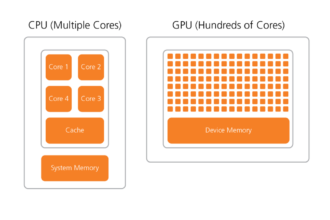EXCLUSIVE POST – Yesterday’s jammed-packed day at TEDMED has been outstandingly summarized and diarized by Patricia Salber. The recurring thread that I noted throughout a fruitful day of talks was that Moore’s Law, the formula for the exponential growth of computing capacity, was invoked, I counted, at least three times during the day, and has given American medicine a sense of inevitable optimism.
EXCLUSIVE POST – Yesterday’s jammed-packed day at TEDMED has been outstandingly summarized and diarized by Patricia Salber. The recurring thread that I noted throughout a fruitful day of talks was that Moore’s Law, the formula for the exponential growth of computing capacity, was invoked, I counted, at least three times during the day, and has given American medicine a sense of inevitable optimism.
That optimism was tempered with the challenge simply outlined by Francis Collins, the head of NIH, in the first presentation: that while there are 250 known applications for disease, there are at least 4000 identifiable diseases. Addressing this gap, which he visualized as an image of the Golden Gate Bridge, was what I sought to talk about with Dr. Don Rucker, Chief Medical Officer of Siemens. (Siemens is a sponsor of one our communities, HealthWorksCollective, and I have been their guest at TEDMED.)
Rucker has both a particular as well as 360-degree view of the problem. As a working ER doctor in Philadelphia, Rucker can see immediate application of the imaging and informatics for which he provides strategic leadership at Siemens. As a computer science graduate from Stanford, he is the embodiment of medical art and science.
Rucker sees the greater physical availability of images – and the corresponding democratization of images to both provider and patient – as offering the greatest potential for moving data toward better health care quality. But the critical factor is Moore’s law where processing power has increased exponentially. An example that he used is the imaging of plaque and CT angiograms:
“When CT scanners first came out, they showed 5-6 slices of the brain and took 45 minutes. Now their processing speed is so fast that you could ‘gate-out’ respiratory variation and image the abdomen. In 2000, it became fast enough that you could image the chest. In 2006, they were fast enough to image a beating heart (slowed down with beta blockers) now you don’t even need those.”
Now we can look at a coronary artery, and not at markers of blockage but markers of disease within the walls of the blood vessel before it blocks.
You can also reduce cost significantly – and get people out of the ER faster.
Rucker is clearly excited, and at the same time able to take an historic view, of the growth potential in health informatics – where Moore’s Law kicks in. As he noted, what we now call “cloud computing” really began in the 60’s with giant IBM mainframes used by health providers. Now the processing power is bringing together structured data, in the form of IT reporting, and unstructured or “free” data, in ways that have yet to be truly tapped. The challenge here, as Rucker sees it, is the “relatively low density of information” contained in the data. As patients become more and more the repositories of their own data, even incorporating into that data the kind of sensor information that was presented by David Icke, CEO of MC10 of Cambridge, that signal-to-noise ratio is only going to increase.
Add to that, the privacy issues and policies that try to pick how data is to be interpreted and viewed, and you begin to see the kinds of issues that clinical informatics deals with. As Rucker noted, “You have questions such as should a spouse taking care of a disabled husband be allowed to see his or her test results? Sure, but how about the spouse who is planning to divorce her husband?”
Still, his continued optimism for a research-driven, information-based medical system is strong. Coronary artery disease, which is still the leading cause of death for Americans, can be directly connected to our country’s business model for health care delivery. The U.S.’s drive to be more imaginative with technology leads to greater democratization and a broad application of innovation that lowers costs and allow people to live longer.










